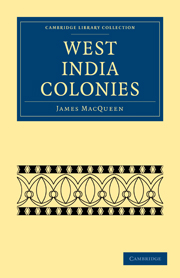Summary
“MOST of our political and critical writers have now relieved themselves from the burden of all moral responsibility. Truth, consistency, and sincerity, are all of no moment. The object is to bite, strike, and cut. Good faith is another name for sincerity. Wanting that, what is talent, what is genius? Bad faith is another name for dishonesty. It leads a man to say what he does not think; to write what he does not believe.”
The writer of the preceding sentences is understood to be a contributor to the Edinburgh Review, (particularly on Colonial subjects,) and no where are the truths here conveyed more strongly and strikingly exemplified, than in the columns of that Journal, in all that relates to Colonial matters. Of late years, “The Edinburgh Review and Critical Journal,” departing from its first faith, has stood the foremost in the ranks of the calumniators and assailants of those unfortunate Colonies. It is the Quarterly tricoloured flag of misrepresentation and mischief,—“the Ajax of the party of anti-colonists whose labours in the prosecution and support (judging from their public writings and proceedings) of their darling objects, political reveries, and trading theories, would strip their fellow, subjects of their property, and thereby undermine—destroy, the glory, strength, security, and independence of their country.
- Type
- Chapter
- Information
- West India Colonies , pp. 1 - 50Publisher: Cambridge University PressPrint publication year: 2010First published in: 1824



